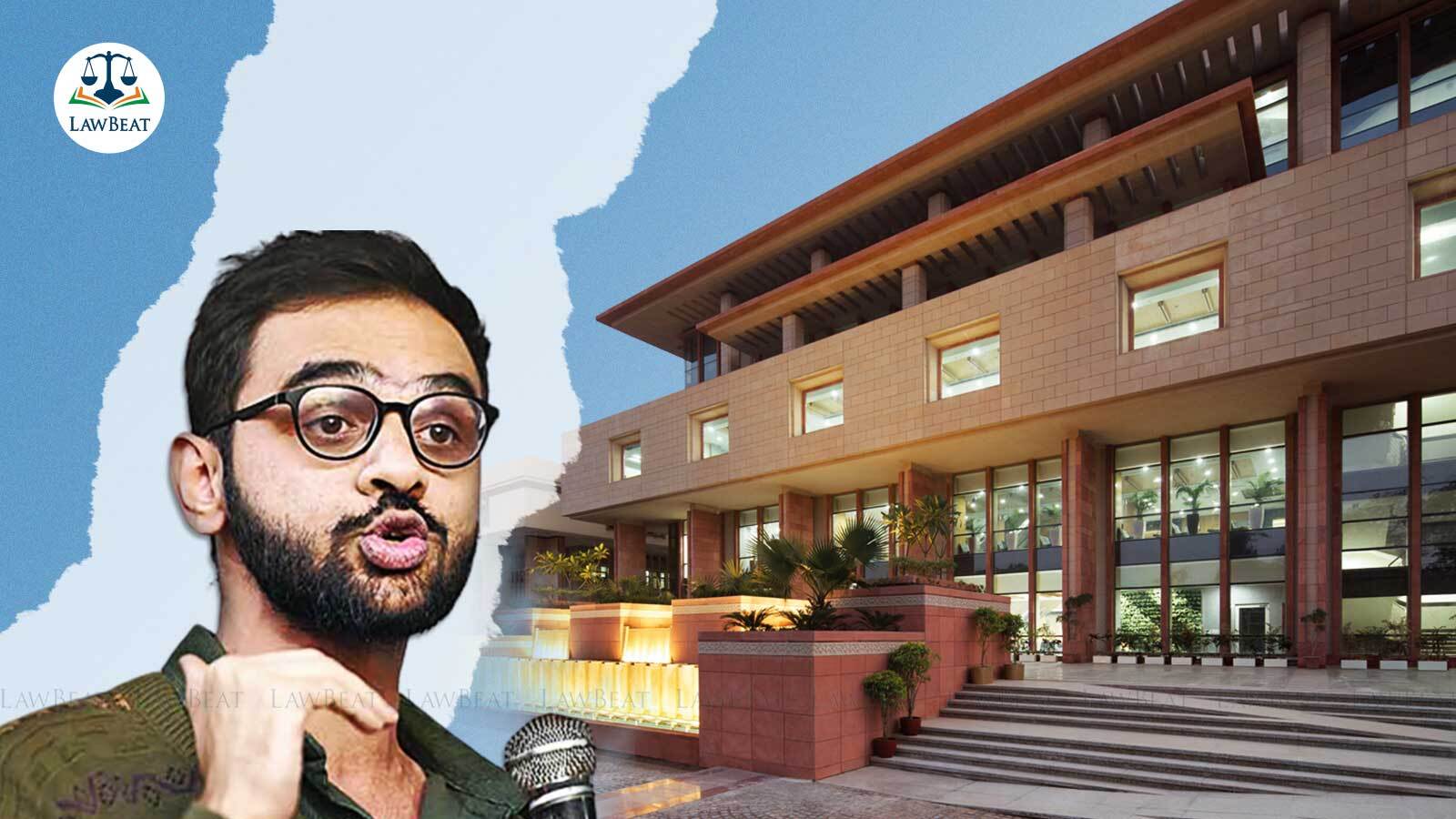"Incitement can also take place from far away"; Delhi High Court to Umar Khalid in Bail Plea

The Delhi High Court on Friday directed Umar Khalid's bail plea to be heard on a daily basis post-lunch time from Monday onwards. "We can't hear the matter like this, in a piecemeal fashion, let us hear it Monday onwards post lunch on a daily basis," observed Justice Mridul.
The hearing on Friday majorly revolved around the connotations of the words "Inqalab", "Krantikari" and "Revolution", used in Khalid's speech at Amravati.
Adv. Trideep Pais, counsel representing Umar Khalid, began his submissions and read out a transcript of the speech. While referring to Khalid's statement on the Prime Minister to the effect that the Prime Minister's speech claiming "Hindustan Mei sab changa si" is far from the truth and that the reality was that "Hindustan Mei Modi Nanga si", the court interjected and asked Mr. Pais to explain the same.
"Is this appropriate to talk about our Prime Minister this way? Could other words not have been used?" asked MJustice Bhatnagar. "Why could he not have said 'Hindustan Mei sab changa si' is not the truth 'poornaviram' (fullstops)," he added.
Pais explained that merely referring to the Prime Minister as "Nanga si" does not amount to an act of terror under the Unlawful Activities Prevention Act, 1967.
"Milords this word "Nanga si" does not amount to a terror crime. A lot worse has been said about our heads of state. The finance minister had been called "Napunsak". This cant be said to be an act of terror. I can place on record a compilation of worse things that have been said about the heads of state," he submitted.
Court also raised apprehensions against the connotation of words such as "Inqalab" and "Krantikaari" used in Khalid's speech and asked Pais as to in what context the words were used.
Justice Mridul said, "What is the meaning of the words used in the speech such as 'inqalab' and 'krantikari'? It has not been said 'Inqalab zindabad'. It is said with the word 'krantikari' ".
While Pais offered to play a podcast by the Quint on the history and meaning of the word "Inqalab" by Irfan Habib, Justice Siddharth Mridul said that would not be necessary. "Unless you plan on giving us a history lesson, we dont need to hear the podcast on "inqalab", he said.
Pais further argued that the word "Inqalab" had been used in the sense of the context of organising a peaceful, non violent protest against an unjust and unfair law, namely, the Citizenship Amendment Act, 2019 and the National Registry of Citizens and that by no stretch were the words "inqalab" or "krantikari" used in the context of inciting violence or terror.
To this, Justice Mridul asked, "What is the dictionary meaning of the word 'inqalab' and 'krantikari' ?"
Pais replied, "Inqalab means "revolution" a sudden radical or complete change; a fundamental change in political organisation especially to overthrow or renunciation of one govt or ruler and the substitution of another by the governed."
Justice Mridul then inquired as to what freedom fighter, Bhagat Singh, meant by the word "inqalab", to which Mr. Pais responded, "a radical change or revolution".
Milords may also allow me to show the meaning of the word "revolution" during the indian independence movement, Pais requested. To this Justice Mridul objected and said, "We are independent! Where is the need for revolution now?"
Pais further argued that the word "revolution" was used in the context of organising a non violent satyagraha. He further relied on an article from 'The Hindu', to substantiate his arguments and to show that even the first Prime Minister of India, Pandit Jawaharlal Nehru, referred to himself as a "revolutionary".
He argued that simply using the word "revolution" does not mean violence or terror. He referred to revolution in engineering, science, medicine, technology, etc. and argued that thoughts and ideas of violence should not be mixed up with the meaning of the word revolution.
Justice Mridul, while quoting an Urdu poet, pointed out that for incitement "just the people around you do not have to be affected, one can also incite people far away."
Pais also extensively argued on how the language used in the chargesheet was fanciful and flowery and that there was no evidence to support the bold claims made therein.
Pais referred to claims in the chargesheet on how Khalid was a mentor to Sharjeel Imam or how the WhatsApp group was created upon Khalid's specific instructions. He claimed that these allegations had been made without a shred of evidence.
Court adjourned the hearing and listed the matter on Monday, with further directions that it would be heard on a daily basis so that arguments could be concluded before the court's summer vacation.
Background
On September 13,2020 Khalid was arrested in connection with communal clashes that broke out in northeast Delhi in February 2020, after violence between Citizenship (Amendment) Act supporters and its protesters became out of control leaving many people dead and several injured.
Khalid was granted bail in April 2021 in another case but has been behind bars in Tihar Jail over conspiracy charges under UAPA.
CASE TITLE:- Umar Khalid v State of NCT of Delhi (Crl. A. 173/2021)
